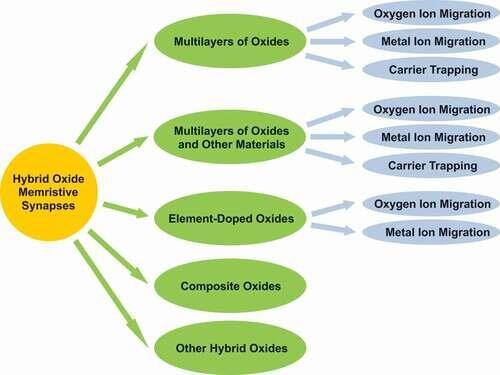Scientists are getting better at making neurone-like junctions for computers that mimic the human brain’s random information processing, storage and recall. Fei Zhuge of the Chinese Academy of Sciences and colleagues reviewed the latest developments in the design of these “memristors” for the journal Science and Technology of Advanced Materials.
Computers apply artificial intelligence programs to recall previously learned information and make predictions. These programs are extremely energy-and time-intensive: typically, vast volumes of data must be transferred between separate memory and processing units. To solve this, researchers have been developing computer hardware that allows for more random and simultaneous information transfer and storage, much like the human brain.
Electronic circuits in these “neuromorphic” computers include memristors that resemble the synaptic junctions between neurones. Energy flows through a material from one electrode to another, much like a neurone firing a signal across the synapse to the next neurone. Scientists are now finding ways to better tune this intermediate material so the information flow is more stable and reliable.









Comments are closed.